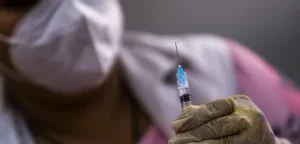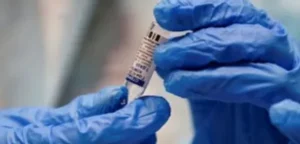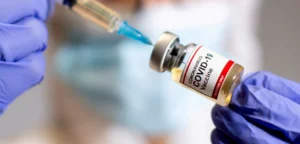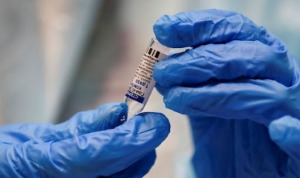To anyone familiar with the global pharmaceutical industry’s considerable political influence, President Joe Biden’s announcement on May 5, 2021, that the US intended to support the TRIPS waiver proposal, must have seemed like a startling change of tune.
President Biden’s statement was followed by a similarly unexpected statement from the European Commission (EU)’s head the following morning, to the effect that the bloc was willing to “discuss” the waiver proposal.
Music to the ears of a political strategist, doubtless, but not enough to make the heart sing. First, because US support by itself will not ensure that the World Trade Organisation (WTO) adopts the TRIPS waiver proposal, certainly not in the form it was originally proposed. Second, because a TRIPS waiver, at this stage of the pandemic with the virus mutating into deadlier variants that are potentially resistant to approved vaccines, may well be too little, too late.
WHAT IS THE TRIPS WAIVER PROPOSAL?
On October 2, 2020, India and South Africa tabled a joint proposal before WTO, requesting that a temporary waiver be granted to WTO members permitting them to choose not to enforce four types of intellectual property (IP) rights —copyrights and related rights, industrial designs, patents and (crucially, as we’ll see later) undisclosed information (i.e. trade secrets) — under the Trade-Related Aspects of Intellectual Property Rights (TRIPS) agreement, in relation to Covid-19 products and technologies for the duration of the ongoing crisis. The waiver, in a sense, merely seeks that member states acknowledge that a public health crisis representing a national emergency as envisaged in the Doha Declaration has arisen.
The proposal was opposed by a small group of countries — Australia, Brazil, Canada, the EU, Japan, Norway, Switzerland, the UK and the US — who argued that existing TRIPS allowances for compulsory licensing and parallel importing were sufficient to address the proposal’s concerns around access.
WHY IS A WAIVER NECESSARY?
It’s not a stretch to say that TRIPS allowances like compulsory licenses (CLs) are largely ineffective. First, countries such as India, Malaysia and Colombia, which have granted compulsory licences in the past, have faced backlash from other member States (notably, the US) and pharmaceutical companies, including threats of trade sanctions. This is probably why the draft waiver proposal requires that WTO members do not challenge (including through the WTO’s Dispute Settlement Mechanism) any measures taken in conformity with the waiver.
Second, vaccine manufacturing (being a biological process) requires cell lines, specific technical manufacturing know-how and clinical test data. While the process itself may be gleaned from patent filings, the technical know-how (for example, the most efficient way of running the process so as to give the highest yield) may not be disclosed in the filings, and instead protected as a trade secret’. Trade secrets are a separate form of IP rights, which unlike patents, do not require public disclosure and offer indefinite protection (patents generally offer 20 years). In addition, the test data from clinical trials required to be submitted to regulators to prove safety and efficacy may be protected under data/market exclusivity provisions in various member states.
Finally, Covid-19 vaccines involve not one or two but potentially hundreds of patents held by various owners, because they have been developed on platform technologies (such as Moderna’s mRNA-1273 technology and BioNTech and Pfizer’s BNT162), previously used to develop many other vaccines.
Therefore, for compulsory licensing to be effective in the context of vaccines, a government would have to first identify (which it may not have the data to do) and then license potentially hundreds of relevant patents, and compel the patent holders to provide all cell lines, data and technical know-how necessary to work the patents effectively (which it may not have jurisdiction to do).
The shortcomings of compulsory licensing mean a global TRIPS waiver — of not only patents but trade secrets — is necessary to create a risk-free environment for other vaccine manufacturers to at least attempt to reverse-engineer vaccines.
WHY BIDEN AND WHY NOW?
Clearly, the US and the EU were not enthusiastic fans of an IP waiver or compulsory licensing before Biden’s unexpected announcement last week. So what has changed?
A good-natured, trusting sort might say, “Look, developed countries funded and trusted Bill Clinton’s COVAX Initiative to vaccinate the developing world, but the recent wave of infections in countries like India requires that we scale up manufacturing immediately, and that’s what the TRIPS waiver will achieve.”
A cynic would say, “The US could not risk antagonising the powerful biopharma lobby until it had more vaccines than people who wanted to be vaccinated, which it now does. President Biden knows that the WTO requires full consensus for a waiver to be approved, and the UK, Switzerland, Brazil and Japan would never approve such a waiver as proposed. Even if they do, text-based negotiations will continue for months (the WTO’s next ministerial conference is scheduled for November 30 through December 3) and any eventual waiver will, at most, be limited to a patent waiver on vaccines for a limited period only. This will ensure that patent holders retain control of cell lines, know-how and clinical trial data, thereby making any involuntary licences granted by member states pointless. With the global death toll mounting, President Biden had to be seen to be taking action, and so his public support of the TRIPS waiver was staged to steal the moral high ground and solidify his standing with his party’s progressive faction while never actually harming the biopharma lobby’s interests.”
Perhaps there is a more hopeful, yet clear-eyed middle view, one that doesn’t border on naivete.
A BETTER TOMORROW
Yes, an IP waiver alone is not a solution, as the biopharma lobby has been saying to anyone who will listen for the last year. Supply chain constraints (including limited manufacturing capacity, insufficient bottles, vials and syringes and scarcity of raw materials and ingredients), a highly complex manufacturing process (for mRNA and vector vaccines) and export restrictions arising from ‘vaccine nationalism’ will remain issues.
But an IP waiver would shake up the system. The current model, where 7.8 billion people remain dependent on a handful of vaccine manufacturers who parcel out vaccine doses to the highest bidders and rake in unconscionable profits (Pfizer made USD 3.5 billion in revenue in the first quarter of this year) while tens of thousands die each day, is not working. Something needs to give.
Perhaps President Biden’s public announcement was merely a wake-up call to the biopharma industry, meant to incentivise them to quickly take steps to scale up manufacturing, grant more voluntary licences and technology transfers, donate more vaccine doses or sell them on a non-profit basis to lower-income countries in need, or else.
Perhaps President Biden’s support for the waiver, and the latest US Trade Representative report indicating that the US will respect the right to grant compulsory licenses consistent with the TRIPS agreement, were meant to give countries like India the confidence to boldly use (or threaten to use) their compulsory licensing legislation without fear of trade retaliation.
CONCLUSION: NO TIME TO DIE
Regardless of how the TRIPS waiver unfolds, what countries like India need to do right now is vaccinate their populations as quickly as possible to deny the virus hosts and slow down the pace of mutation. To do this, they must scale up domestic manufacturing capacity on a war footing — through technology transfer of the Covaxin IP and know-how to every vaccine manufacturer in India, through voluntary or compulsory licensing of ‘foreign’ vaccines and through imports.
The one thing we cannot afford to do, with 4,000 people dying each day in India alone, is nothing.
A version of this article appeared in https://www.news18.com/news/opinion/what-bidens-support-to-trips-waiver-proposal-mean-for-the-fight-against-covid-19-pandemic-3723674.html.















